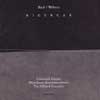Bach; Webern Ricercar
A homage by one great musical craftsman to another, in an absorbing programme
View record and artist detailsRecord and Artist Details
Composer or Director: Johann Sebastian Bach, Anton Webern
Genre:
Chamber
Label: ECM New Series
Magazine Review Date: 7/2003
Media Format: CD or Download
Media Runtime: 69
Mastering:
Stereo
DDD
Catalogue Number: 461 912-2

Tracks:
| Composition | Artist Credit |
|---|---|
| Musikalisches Opfer, 'Musical Offering', Movement: Ricercar a 6 (orch by Webern) |
Johann Sebastian Bach, Composer
Christoph Poppen, Conductor Johann Sebastian Bach, Composer Munich Chamber Orchestra |
| Cantata No. 4, 'Christ lag in Todesbanden' |
Johann Sebastian Bach, Composer
Christoph Poppen, Conductor Hilliard Ensemble Johann Sebastian Bach, Composer Munich Chamber Orchestra |
| String Quartet |
Anton Webern, Composer
Anton Webern, Composer Christoph Poppen, Conductor Munich Chamber Orchestra |
| (5) Pieces |
Anton Webern, Composer
Anton Webern, Composer Christoph Poppen, Conductor Munich Chamber Orchestra |
Author: Rob Cowan
Symmetry, the cyclic evolution of a musical germ and the idea of birth in the midst of death: all are fundamental to ‘Ricercar’. Webern’s motivically determined orchestration of the ‘Ricercar’ from Bach’s late The Musical Offering, where single lines change colour by the bar, opens and closes the programme. Differing track timings suggest alternative performances, which these are not (the leads-in and leads-out differ) but the idea of ‘hearing’ the work differently after journeying through a central sequence is both meaningful and justified.
Christoph Poppen’s orchestration of Webern’s 1905 String Quartet soars and surges with an ardour that befits this early but significant masterpiece. Like Webern in Bach, Poppen knows how and where to taper his forces, while his players respond with obvious dedication. Bach’s Cantata Christ lag in Todesbanden grows, as Herbert Glossner reminds us, from a ‘primordial cell’ of a single semitone motive. Eight stanzas each end with a ‘Halleluja’, as unalike in shade and meaning as the strands of Webern’s ‘Ricercar’, so magnificent is the young Bach’s handling of the texts. Like Joshua Rifkin and more recently Paul McCreesh, Poppen performs choral Bach with single voices; he also encourages a string playing style that largely dispenses with vibrato, so that when you cross from Webern’s Quartet to Bach’s BWV4 you could as well be switching to a period performance. The Hilliards sing beautifully, both solo and in ensemble, and the balance between voices and instruments is impeccable.
Some might balk at the sudden eruption of Webern’s violent ‘Heftig betwegt’ on the heels of Bach’s closing ‘Halleluja’, but the musical senseof having five ‘symmetrical’ Movements for String Quartet fall within the greater symmetry of the programme as a whole overrides any initial discomfort. Again, Poppen’s finely tooled reading focuses in precise detail the mood and texture of each miniature so that the eventual return of Bach-Webern is indeed like a profound thought revisited by a changed mind. Even writing this makes me want to play the whole programme again, which is surely recommendation enough – that, and the excellent sound quality.
Christoph Poppen’s orchestration of Webern’s 1905 String Quartet soars and surges with an ardour that befits this early but significant masterpiece. Like Webern in Bach, Poppen knows how and where to taper his forces, while his players respond with obvious dedication. Bach’s Cantata Christ lag in Todesbanden grows, as Herbert Glossner reminds us, from a ‘primordial cell’ of a single semitone motive. Eight stanzas each end with a ‘Halleluja’, as unalike in shade and meaning as the strands of Webern’s ‘Ricercar’, so magnificent is the young Bach’s handling of the texts. Like Joshua Rifkin and more recently Paul McCreesh, Poppen performs choral Bach with single voices; he also encourages a string playing style that largely dispenses with vibrato, so that when you cross from Webern’s Quartet to Bach’s BWV4 you could as well be switching to a period performance. The Hilliards sing beautifully, both solo and in ensemble, and the balance between voices and instruments is impeccable.
Some might balk at the sudden eruption of Webern’s violent ‘Heftig betwegt’ on the heels of Bach’s closing ‘Halleluja’, but the musical senseof having five ‘symmetrical’ Movements for String Quartet fall within the greater symmetry of the programme as a whole overrides any initial discomfort. Again, Poppen’s finely tooled reading focuses in precise detail the mood and texture of each miniature so that the eventual return of Bach-Webern is indeed like a profound thought revisited by a changed mind. Even writing this makes me want to play the whole programme again, which is surely recommendation enough – that, and the excellent sound quality.
Discover the world's largest classical music catalogue with Presto Music.

Gramophone Digital Club
- Digital Edition
- Digital Archive
- Reviews Database
- Full website access
From £8.75 / month
Subscribe
Gramophone Full Club
- Print Edition
- Digital Edition
- Digital Archive
- Reviews Database
- Full website access
From £11.00 / month
Subscribe
If you are a library, university or other organisation that would be interested in an institutional subscription to Gramophone please click here for further information.




